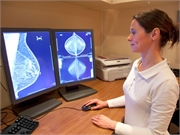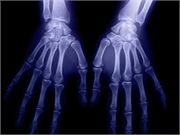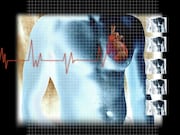Tag: Medical Technology: Misc.
Laser-Based Imaging + AI May Diagnose Brain Tumors in OR
Accurate diagnosis in <150 seconds in the operating room could improve decision-making during surgery
AI System Outperforms Radiologists in Breast Cancer Prediction
Reduction seen in false positives, false negatives in datasets from the United Kingdom, United States
Machine Learning System Makes More Alerts for Med Errors
68.2 percent of MedAware alerts would not have been generated with clinical decision support system
Machine Learning Model Helps Predict Risk for MI, Cardiac Death
Model integrates clinical and quantitative imaging-based variables to predict long-term cardiac risks
New Cardiogenic Shock Staging System IDs Mortality Risk
Study is first to validate Society for Cardiovascular Angiography and Intervention system
Palm, Finger Temps Higher on Thermal Imaging in RA Patients
In all regions of interest, rheumatoid arthritis patients without active inflammation have higher temperatures
Smartwatch App Shows Promise for Identifying Atrial Fibrillation
Among those notified of irregular pulse, positive predictive value 0.84 for observing a-fib on ECG
AI Model Helps ID Those at Risk for Familial Hypercholesterolemia
Model may identify more who are at risk while substantially reducing the number of people screened
Smartphone-Operated One-Lead ECG Detects A-Fib, Flutter
High sensitivity, specificity demonstrated for atrial arrhythmia
Monitoring HTN Med Adherence Does Not Improve BP Control
Text messaging and remote monitoring can aid adherence but not blood pressure control














